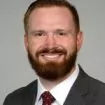Cirba, Inc., d/b/a Densify, a quintessential start-up success story and provider of cloud services to automate virtual infrastructure optimization, recently filed a Patent Infringement and Unfair Competition Complaint against VMware, Inc. Densify offers infrastructure optimization through its Cloud-Learning Optimization Engine ("Cloe") and complements VMware's products to enable applications to dynamically match their needs to optimal cloud supply. While Densify has historically offered products to complement VMware services, VMware has gradually become Densify's competitor in virtual infrastructure optimization. Densify alleges that VMware determines virtual guest-host placement, via its recent "vRealize Operations 7.0" and "Predictive DRS" release, which purportedly infringes on two patents covering Densify's virtual guest-host placement services – US8209687 and US9654367. Densify also alleges trademark infringement, insisting that VMware is creating confusion in consumers' minds.
In the Complaint, filed in the District of Delaware on April 25, 2019, Densify alleges VMware copied their technology, claiming that VMware has long been familiar with Densify's software. For instance, according to Densify, at the VMworld 2015 trade show, VMware previewed the vROps 6.1 dashboard that looked strikingly similar to Densify's product that had been in the market since 2012 ̶ so much so that an audience member spoke up during the presentation to note how similar the vROps 6.1 dashboard was to the Densify dashboard. Additionally, VMware also released Predictive DRS, which is allegedly similar to a core Densify feature to provide predictable patterns of resource usage. According to Densify, these previous releases were troublesome and infringing, but VMware was still unable to offer a compelling product like Densify's that satisfied the needs of customers with complex business and operating constraints. For this reason, Densify never brought a complaint...until now.
Over the years, Densify alleges VMware increasingly used infringing technology and its recent release of vROps 7.0, and now new release of vROps 7.5, is an imminent threat to Densify's virtual infrastructure optimization intellectual property. vROps 7.0 added an "Automated Host Based Placement" feature, which directly competes with a key Densify product known to VMware. With VMware offering steep discounts to subscribe to vROps 7.0 in an apparent effort to foreclose the infrastructure optimization market to competition, Densify seemed all but forced to sue to enforce their intellectual property rights against VMware.
With regard to allegations of unfair competition, Densify claims that VMware not only copied their technology, but also began using its name and trademark DENSIFY in reference to VMware's products. For example, VMware began identifying a key vROps feature as "Workload Optimization – Densifying to Repurpose Hosts." Densify states in its Complaint, "VMware uses the marks to increase the commercial value of its products and services by creating an association with Densify's award winning optimization products." Although Densify claims that it began using its trademark and services marks as early as 2015, the company did not file an application for trademark protection until August 14, 2018, such that Densify's application to register its trademark is currently pending. While the company claims that its "Densify" marks have achieved secondary meaning, it seems that Densify faces a major uphill battle to succeed in its Unfair Competition claim in light of its long delay in filing for trademark protection.
While Densify has seen impressive growth for its cloud offerings, including numerous industry awards, much of Densify's growth can be attributed to VMware's truly remarkable run since its founding in 1998. VMware is a behemoth in the virtual infrastructure market and specializes in providing a platform for virtualizing IT infrastructures. Within six years of its inception, the company was acquired by EMC, now Dell EMC, for $625 million. Now, as of May 27, 2019, VMware has a market cap of $81.26 billion.
Though it may be intriguing to see a relative upstart take on an industry leader, Densify undoubtedly has a difficult fight ahead of them. Densify has never gone to court for a patent dispute, whereas VMware has been a defendant in 22 patent cases in the past 10 years. VMware has not yet filed an Answer; however, it will almost certainly attack the validity of the patents as they have done in the past in defending against patent infringement allegations. It will be interesting to see how Densify navigates through this litigation. By early accounts, Densify has come out swinging in a major way by filing a Motion for Preliminary Injunction to prohibit VMware's use and sale of vROps 7.0 and 7.5 until a trial can be held.
This case is also particularly interesting given the fact that Densify both partners with and now competes with VMware, as is frequently the case in the high tech industry. On one hand, Densify relies heavily on its ability to integrate with VMware's virtualization platform. As such, it would seem to be in Densify's best interest to play nice with VMware. On the other hand, Densify likely cannot successfully compete against a titan like VMware unless it enforces its turf via intellectual property protection. Allowing VMware to infringe Densify's intellectual property, it seems, would all but wipe out a major part of Densify's business.
The content of this article is intended to provide a general guide to the subject matter. Specialist advice should be sought about your specific circumstances.
